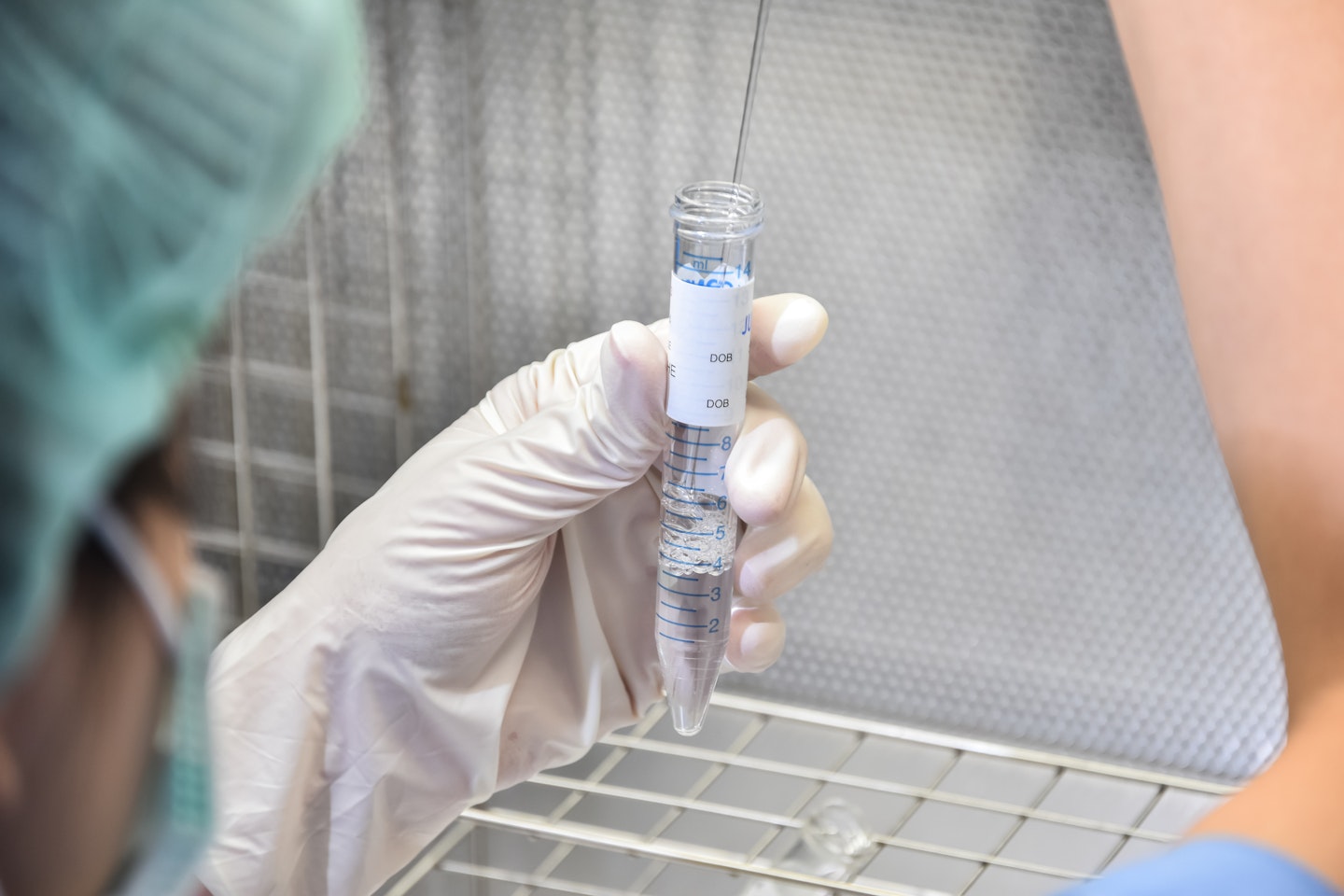A company has withdrawn the sale of £250 “fertility drips”, after being accused of exploiting women struggling to conceive.
The intravenous vitamin and mineral treatment came under fire after charities and experts pointed out that Get A Drip's claim it could "help support normal fertility" was not backed up with scientific evidence.
Several people, including leading charities, have criticised Get A Drip – who sell their intravenous products in London shopping centres in Shoreditch and Westfield, White City – for commodifying the idea that fertility might be improved or fixed using the device.
The fertility drip treatment’s “key ingredients” included calcium, B complex (Vitamin B1, B2, B3, B5 & B6), Amino Acids, Zinc, and Potassium – but the British Pregnancy Advisory Service (BPAS) states that there is no proven correlation between these vitamins and “fertility”.
“Women who are struggling to conceive often feel a huge amount of guilt, and NHS-funded fertility treatments are becoming increasingly difficult to access,” Katherine O’Brien, a spokesperson for the British Pregnancy Advisory Service (BPAS) told the Independent.
“As a result, women are particularly vulnerable to snake oil salesmen who seem to promise a quick fix at an extortionate cost. There is no evidence that an IV drip of any combination of vitamins can improve a woman’s fertility,” she added.
In response to BPAS on Twitter, Get A Drip said: “Get A Drip’s Fertility Drip includes a range of nutrients such as zinc, B complex, and selenium, that when supported with a healthy, balanced lifestyle, can help support normal fertility. You will also find similar oral supplements aimed at healthy fertility in Boots.”
When asked to explain the scientific evidence behind £250 treatment, a spokesperson for Get A Drip said, “We do not diagnose or treat medical conditions; our products are nutritional supplements which aim to increase overall wellness.”
But, as pressure grew, the company revoked sales of the drip altogether. In a statement, Richard Chambers, founder of Get A Drip, told Grazia: "We have made the decision to remove the fertility drip effective immediately from our Get A Drip offering.
While we standby the ingredients' benefits, we understand that the issue of fertility is much deeper than nutrition. As a company, we offer health supplements that act to aid and improve overall wellness. We are deeply sorry for the insensitivity of the fertility drip and apologise wholeheartedly for any upset caused."
While the fertility drip has been withdrawn, it is nonetheless a sad indictment of how far “wellness” has come in its grotesque exploitation of consumers. Get A Drip’s alternative products – which include a “slim drip” (£250), a “beauty drip” (£175) and a “limitless drip” (£450-850) – are vaguely named cocktails of vitamins and minerals. Their website offers no real explanation of the science behind the concoctions, nor the results to expect.
Grazia asked what the scientific benefits of intravenous treatment entailed, and were told that “IV nutrition therapy is an effective, medically supported therapy to help the body reach optimal nutrition," by Get A Grip.
"Everyone should practice a healthy, balanced lifestyle," they continue, "But for many people, because of issues with the gut, the body doesn’t always absorb the full amount of nutrition from diet alone. By bypassing the gut, IV nutrition therapy can help because the body absorbs 100% of the nutrients into the bloodstream.
“The products used in Get A Drip clinics are specially formulated at pharmaceutical grade level, quality assured and highly technical. A thorough medical consultation is completed before anyone can undergo a drip, this includes medical history, pulse check, blood pressure reading, and temperature check."

However, others have been quick to point out that few people are now genuinely vitamin deficient. "For the small proportion of the population whose gut can’t absorb vitamins, this might be useful but is already available on the NHS," Tom Dolphin, an anesthetist, who took the picture of the drip store and uploaded it to Twitter. "For everyone else, few people are actually vitamin-deficient these days and for those who are, dietary improvements are better than iv drips."
Women, especially women already experiencing the heartbreak of infertility, are under enough pressure without increasing their anxieties via pseudoscientific, costly treatments. And it should go without saying that anyone seeking treatment, for lacking energy or fertility issues alike, should probably be under the care of their doctor – not a profit-hungry store in a shopping centre.
This article is written by Zoe Beaty and originally appeared on Grazia Online.
Now read:
This is the best day for your baby to be born, according to a study
Make sure you're following Mother & Baby on Instagramfor relatable memes, inspiring stories and parenting hacks!
Subscribe to Mother&Baby magazine for expert tips, must-have products and invaluable advice for mums, delivered straight to your door.
Whether you’re planning your new baby essentials shopping list, giving friends and family gift ideas, or planning for your baby shower, the Amazon Baby Wish List allows you to keep track of all your shopping ideas in one place.Click here to start yours today!
